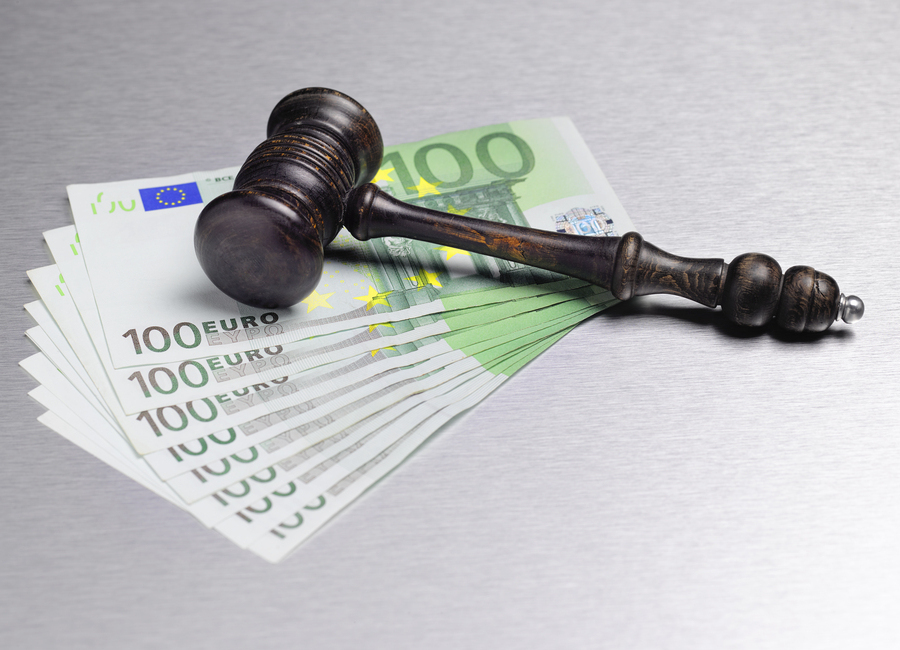Ireland is perceived to be less affected by corruption than the UK for the first time in 25 years, the latest Transparency International corruption perception index (CPI) shows.
Ireland's placed 10th out of 180 countries in the study, which pulls together eight separate surveys and studies on corruption conducted by international think tanks and political risk agencies, including Economist Intelligence and the World Economic Forum.
The higher a country's score, the less it is perceived to be affected by public-sector corruption and the more likely it is to have strong institutions and a well-functioning democracy. Ireland's score improved to 77 from 74 a year ago and from 69 in 2012.
The report states that Ireland has experienced "relatively few corruption scandals over the past five years," with anti-corruption legislation and whistleblower legislation having been enacted in that time.
It warned, however, that concerns remain over strategic lawsuits against public participation that hamper journalists and activists, and delays in ethics law reform.
Ireland was also criticised for suspending its public beneficial ownership registers, described as a critical tool in deterring cross-border corruption and corruption in the public sector.
Transparency International said the suspension would further reduce the country’s resilience to "dirty money," with Ireland having already scored poorly on financial secrecy due to opacity around ownership of special purpose vehicles such as limited partnerships, which fall outside the scope of company beneficial ownership disclosure.
John Devitt, CEO of Transparency International Ireland, said the few corruption in Ireland in recent years compared favourably with the period of 1997 to 2002 when the findings of the Mahon and Moriarty Tribunals blighted the country's reputation.
"Since then, the Oireachtas has passed new laws on whistleblowing, lobbying regulation and anti-corruption. However, international perceptions of Ireland did not shift significantly until this year and it would appear that the absence of any major controversy has influenced perceptions as much as any reform," he added.

Denmark topped the ranking with a score of 90, ahead of Finland, New Zealand (both 87), Norway (84), Singapore, Sweden (both 83), Switzerland (82), the Netherlands (80), Germany (79), and Luxembourg (77).
Australia (75) and Canada (74) placed 13th and 14th while France (72) and the US (69) were further back in 21st and 24th, but ahead of major EU nations such as Spain (35th, 60) and Italy (41st, 56). Somalia (12), Syria (13) and South Sudan (13) remained at the bottom of the index.
The UK (73) fell five places to joint-18th, reflecting the controversies surrounding the awarding of public contracts for personal protective equipment (PPE) during Covid and political donations in return for peerages.
"What the CPI shows is that no country is free of corruption and international perceptions can quickly change in response to scandal or failures to prevent and prosecute corruption," Devitt said.
"No doubt Ireland’s relatively good showing on the CPI this year will be used to suggest that we do not have a corruption problem. Nothing could be further from the truth. There are numerous Garda investigations into corruption inside the Garda itself and other public bodies.
"Recent controversies involving failures to disclose financial interests by public officials or to disclose campaign donations and election expenses highlight the absence of adequate ethics laws and the risk that electoral laws could be easily flouted."
Overall, the average score for countries measured by the index has not improved in the past 10 years, with 122 or more than two-thirds of nations considered to have serious corruption problems.
Devitt blamed "enablers in the west," including Irish-based banks, wealth managers and legal and accounting professionals for laundering the proceeds of corruption and holding up progress in curbing corruption worldwide.
"We need to continue strengthening safeguards against both domestic and global corruption, if we are to continue to improve our international reputation and build public trust in our institutions," he concluded.
(Pic: Getty Images)








